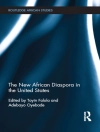Though many studies of contemporary campaigns focus on brief political advertisements and the growing impact of technology on contemporary campaigns, the definitive statements of most candidates are still made in public addresses. Friedenberg examines the first public address made by an American presidential candidate on his own behalf. The circumstances giving rise to William Henry Harrison’s 1840 address, and the themes that he developed in that address are strikingly contemporary, serving as an appropriate prelude to the examinations of contemporary political speaking that follow. Those examinations focus on notable campaign speeches by John F. Kennedy, Barry Goldwater, Richard Nixon, Ronald Reagan, Bill and Hillary Clinton, and George W. Bush.Each study examines a key event that foreshadowed the speech studied. Each study presents a rhetorical biography of the speaker including a discussion of the speechwriting team and preparation techniques utilized by the speaker. Each study presents a thorough study of the campaign context in which the speeches were presented. Each also presents a close reading and rhetorical analysis of the speech itself and observations on the impact of the speech. Cumulatively, Friedenberg’s studies help to illustrate how, even in today’s high-tech political environment of 30-second ads and candidate Web sites, public speeches continue to play a crucial role in political campaigning. Of particular interest to scholars and students involved with political communication and political American campaigning.
Friedenberg Robert V. Friedenberg
Notable Speeches in Contemporary Presidential Campaigns [PDF ebook]
Notable Speeches in Contemporary Presidential Campaigns [PDF ebook]
Achetez cet ebook et obtenez-en 1 de plus GRATUITEMENT !
Langue Anglais ● Format PDF ● Pages 288 ● ISBN 9780313010576 ● Maison d’édition Bloomsbury Publishing (USA) ● Publié 2002 ● Téléchargeable 3 fois ● Devise EUR ● ID 9116579 ● Protection contre la copie Adobe DRM
Nécessite un lecteur de livre électronique compatible DRM












